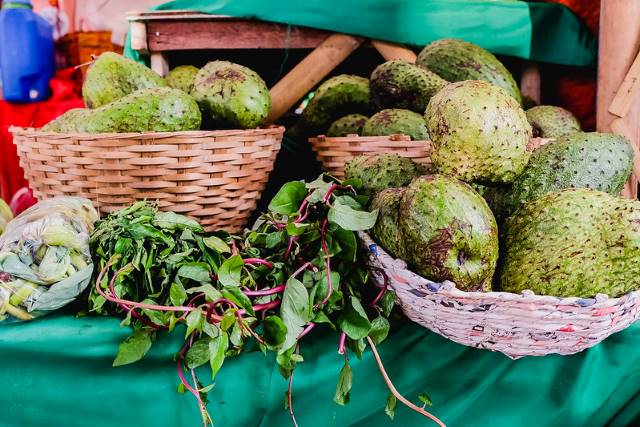Food Waste as Discount Meals in Egypt
 In Egypt, the impoverished population makes up 30.6 million of the total population of 102 million people. The issue of food insecurity in Egypt is juxtaposed with the country’s food waste problem. Food waste is a prevalent issue in Egypt, with the average Egyptian throwing out more than 150 pounds of food annually. The Tekeya food app aims to address both food waste and food insecurity simultaneously, transforming food waste into meals in Egypt.
In Egypt, the impoverished population makes up 30.6 million of the total population of 102 million people. The issue of food insecurity in Egypt is juxtaposed with the country’s food waste problem. Food waste is a prevalent issue in Egypt, with the average Egyptian throwing out more than 150 pounds of food annually. The Tekeya food app aims to address both food waste and food insecurity simultaneously, transforming food waste into meals in Egypt.
Food Insecurity and Food Waste
Research projects that Egypt’s exponentially growing population will increase to 150 million people by 2050. This rapid population growth will add pressure to the food insecurity issue Egypt has tried to manage over the last decade. The reality is that 23% of all Egyptian households “struggle to meet their basic food needs.” The consequences of changing weather coupled with rising food costs are likely to push more families into food insecurity, extending the almost 5% rate of Egyptians who live with the reality of food insecurity.
Fruit and vegetables, milk, wheat and fish are some of Egypt’s most popular yet most wasted foods. On the production end, annually, up to 55% of produce spoils even before reaching a supermarket. In a 2015 study on household food waste, 86.2% of respondents admitted to discarding food. In addition to households, restaurants, hotels and grocery stores regularly throw out perfectly edible and delicious meals. While this is highly problematic all year, during Ramadan, a minimum of 60% of all food goes in the trash, largely due to excess shopping for holiday entertainment purposes.
Tekeya’s Work
Egypt’s high poverty rate coupled with its high food waste rate presents an ideal opportunity for the entrepreneurs behind the Tekeya app, Menna Shahin and Maxim Haartsen. In 2019, the co-founders launched Tekeya to reduce food waste and combat hunger in Egypt. The app only accepts high-quality foods donated from restaurants, bakeries and supermarkets. Businesses either sell or donate meals to Tekeya with the goal of decreasing their surplus of food at the end of the day. Every meal on the app offers healthy, fresh and sustaining options at a discounted rate, making quality food more readily available to low-income communities.
Through hard work, the co-founders created deals and programs with various NGOs, charities and orphanages as soon as six months after releasing the app. The phenomenal success of the app demonstrates peoples’ desire to live sustainably and help others in need. In addition to fighting food waste and insecurity, Tekeya’s work helps decrease the carbon footprint caused by food waste. To date, Tekeya has stopped more than 88,000 pounds of CO2 from entering the environment.
Today, Tekeya has prevented the wastage of 8,000 meals in Egypt, donating around 3,500 of these meals through the participation of 90 local business owners. With both delivery and pickup options at eight locations throughout Cairo, this app makes food much more accessible for many Egyptians. Tekeya’s legacy is spreading throughout Egypt with 7,000 downloads and counting. The donation portion of the app allows international relatives and friends to donate meals and groceries to family through 75 local charities.
Future Expansion
Shahin and Haartsen have big plans for expanding Tekeya throughout Egypt and other Middle Eastern countries. Locally, they plan to improve the app’s donation ability. Tekeya also aims to supply refugee women with meals in Egypt during their transition into Egyptian society by working with the local refugee resettlement organization Threads of Hope.
While local initiatives are a priority, the co-founders plan to share their innovative idea to help others in need internationally. Shahin told Egypt Independent that “[Tekeya] started in Egypt by serving in Aswan, Alexandria, Sharqia, Cario and Giza. [Tekeya] will expand to other Arab countries and then open up to the whole world.” By expanding their successful food waste solution, Shahin and Haartsen have the opportunity to change how the world manages food waste while aiding impoverished communities.
– Hannah Eliason
Photo: Flickr
